Lecture 14 Limitations of Models
Gang He
November 28, 2022
Sample analytic questions
- How do I know if I should trust a model and its results?
- What are the methods to address uncertainties?
- What are the emerging topics to improve IAMs?
- How to interpret modeling results to communicate effectively?
- Where to use model? How to build your model? What to say about your model?
Projections went off
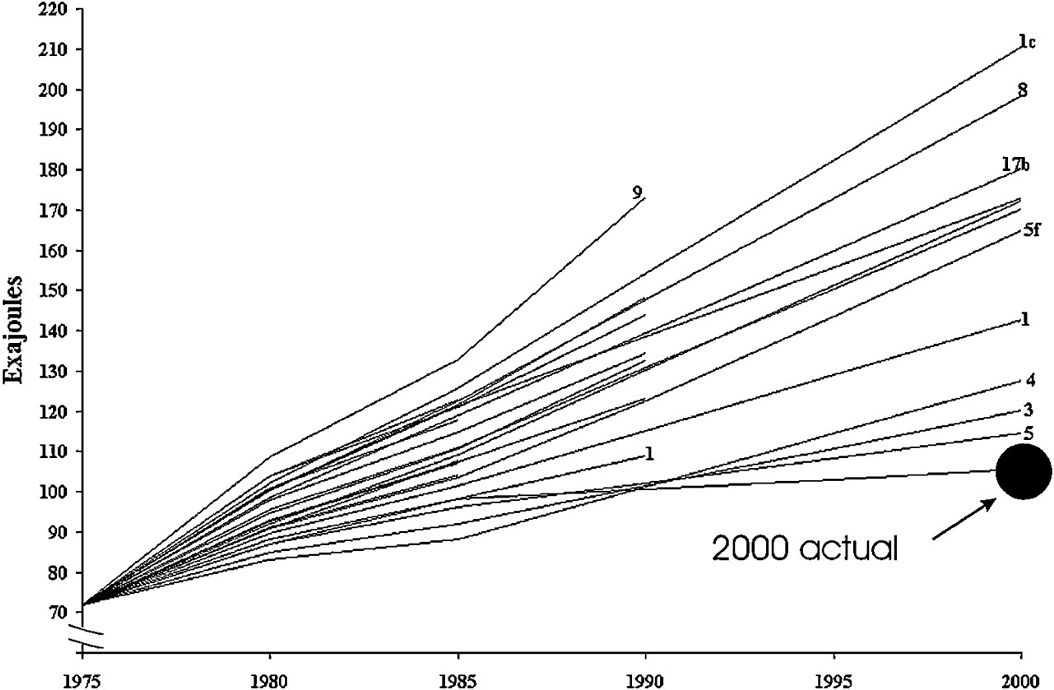
Source: Craig, Gadgil, and Koomey (2002)
IEA underestimates solar and wind
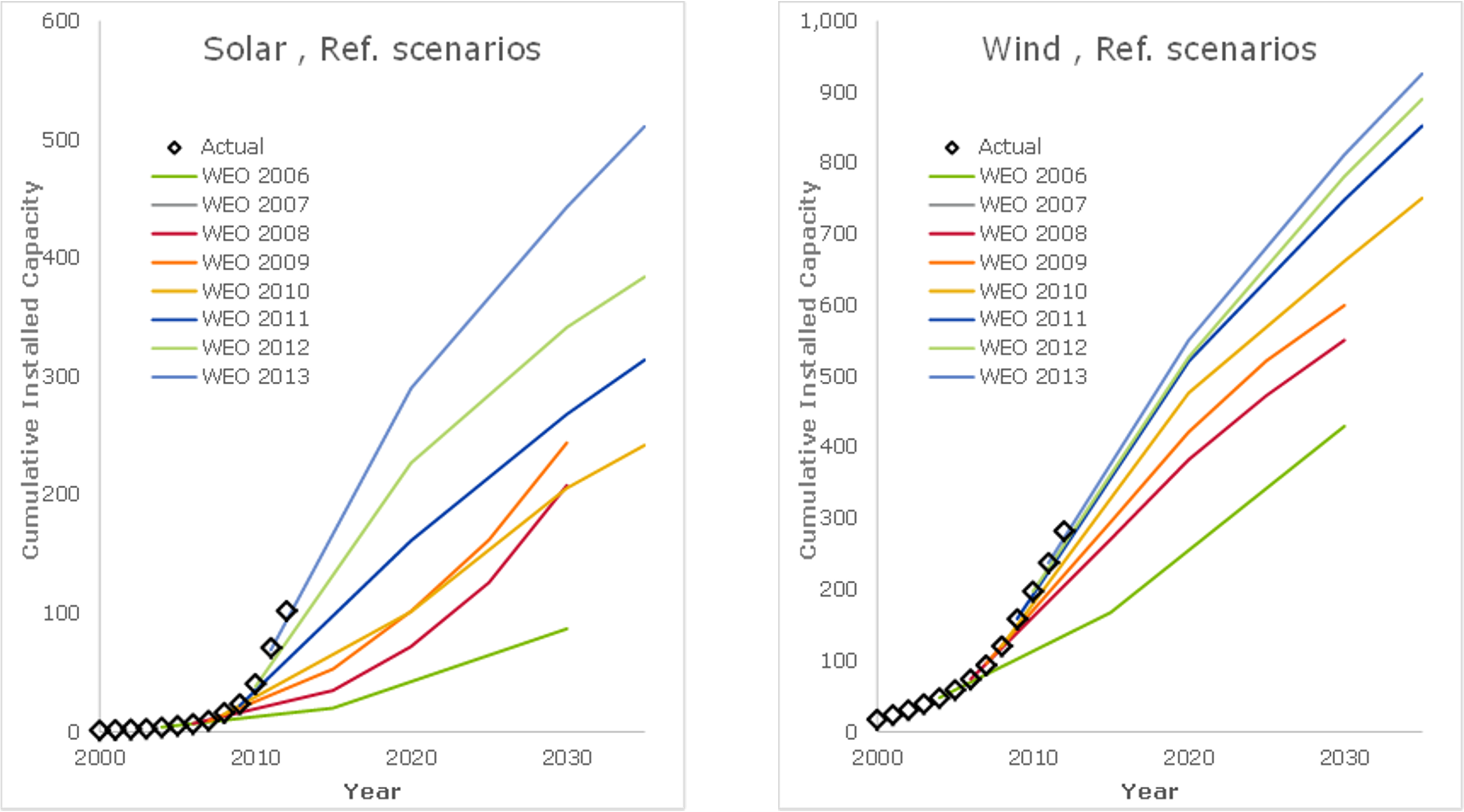
Source: Ecofys
Science models are in better positions
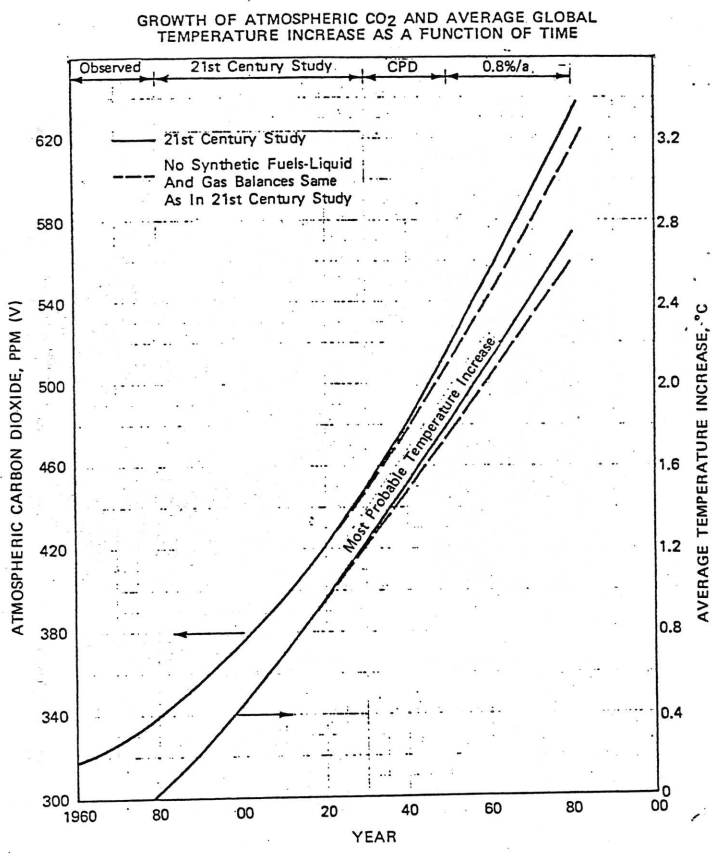
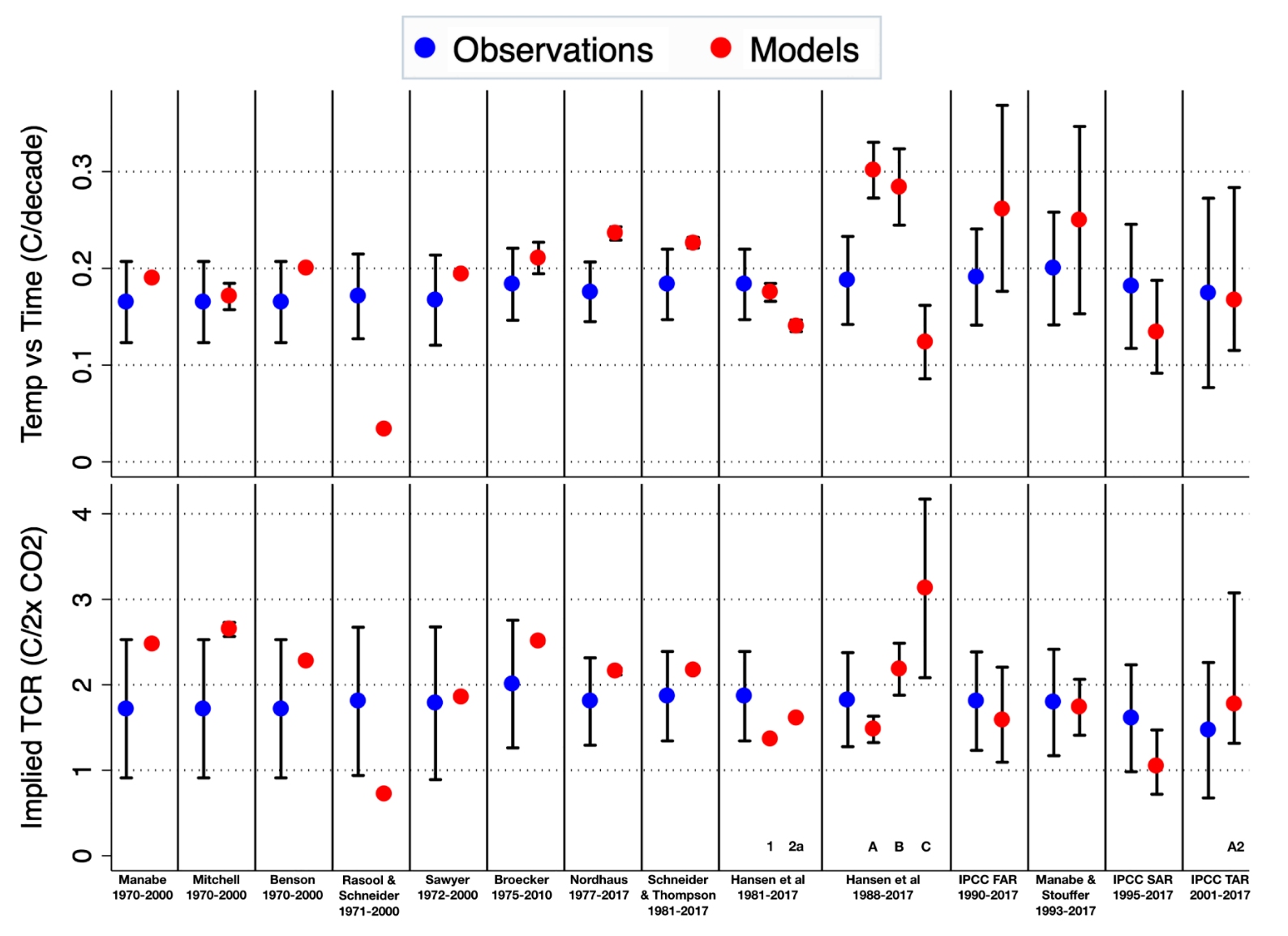
Read more: Inside Climate News, Hausfather et al. (2020)
Conditions for model robustness
Models can be accurate when they describe systems that
- are observable and measurable
- exhibit constancy of structure over time
- exhibit constancy across variations in conditions not specified in the model
- permit the collection of ample data
Read more: Hodges, Dewar, et al. (1992)
Changing landsacpe of new power generation capacities
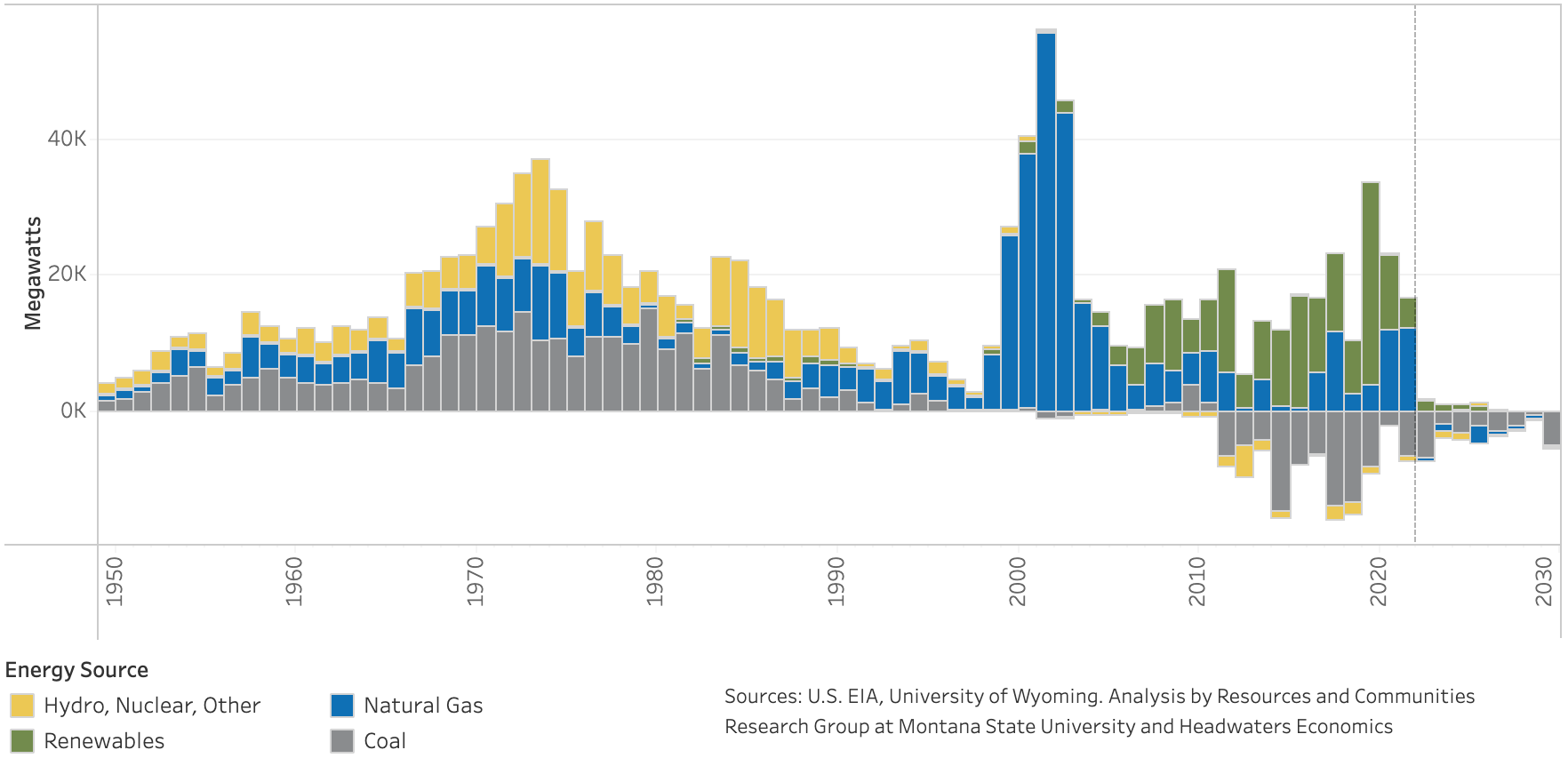
Source: Head Waters Economics
Renewable costs
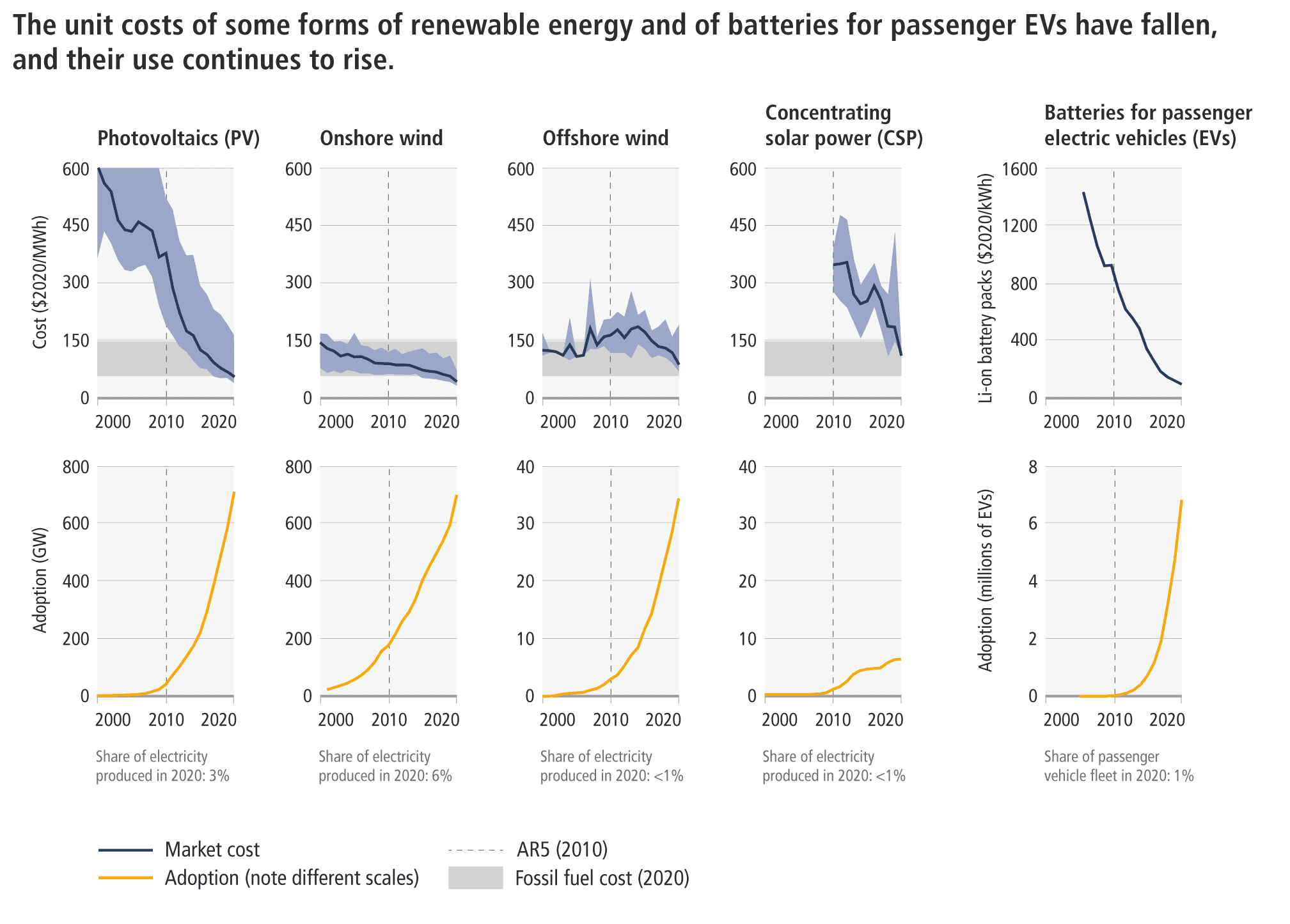
Source: IPCC
Mission impossible
- Predict the unpredictable
- Price the priceless
Better modeling uncertainties
- Define an endpoint of analysis
- List all uncertain parameters
- Specify maximum range of values
- Specify subjective probability distribution for values within the range
- Determin and account for correlations
- Probability distribution of model predictions
- Derive quantitative uncertainties
- Obtain additional data and repeat analysis if needed
Read more: IAEA
Incoporating political economy
Examples
- Risk averse investors
- Subsidies or taxes
- Carbon lock-in
- Unequal costs and benefits of climate polices accrue to different groups
- Public opinion
- Confidence in political institutions
- Trade and investments
- Competence of goverment
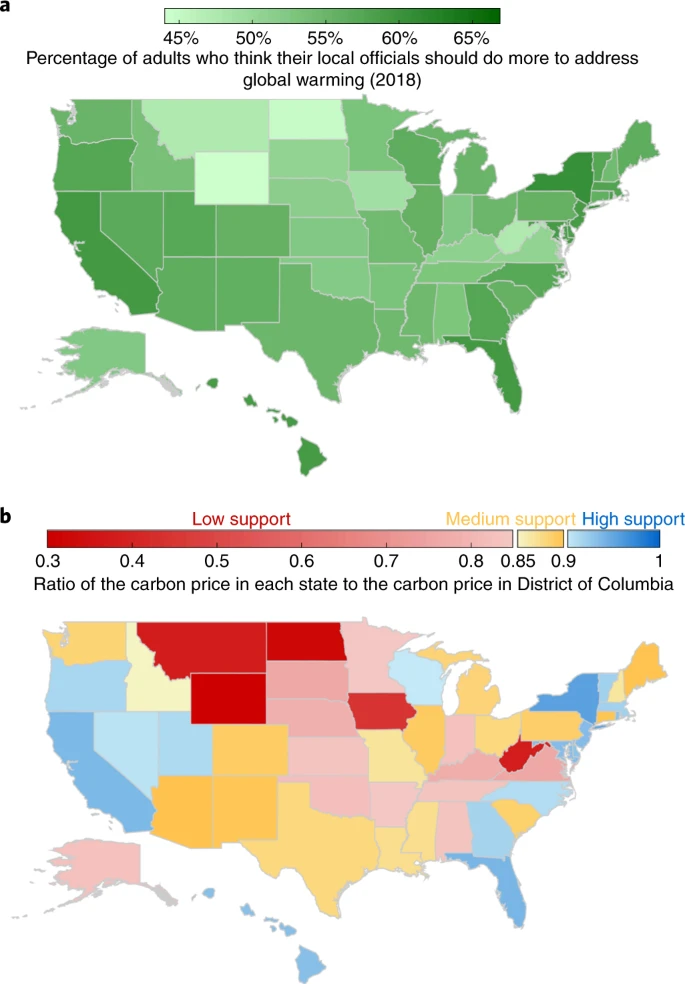
Why a model in the first place
- Description
- Explanation
- Experimentation
- Providing sources of analogy
- Communication/Education
- Providing focal objects or centerpiece for scientific dialogue
- Thought experiment
- Projection
Modeling for insights
- Modeling based on research questions
- Modeling elements, structure, relations
- Do not over-interpret
- Do not misinterpret
- “All models are wrong, but some are useful”. Avoid useless models.
Focusing on structures and relations
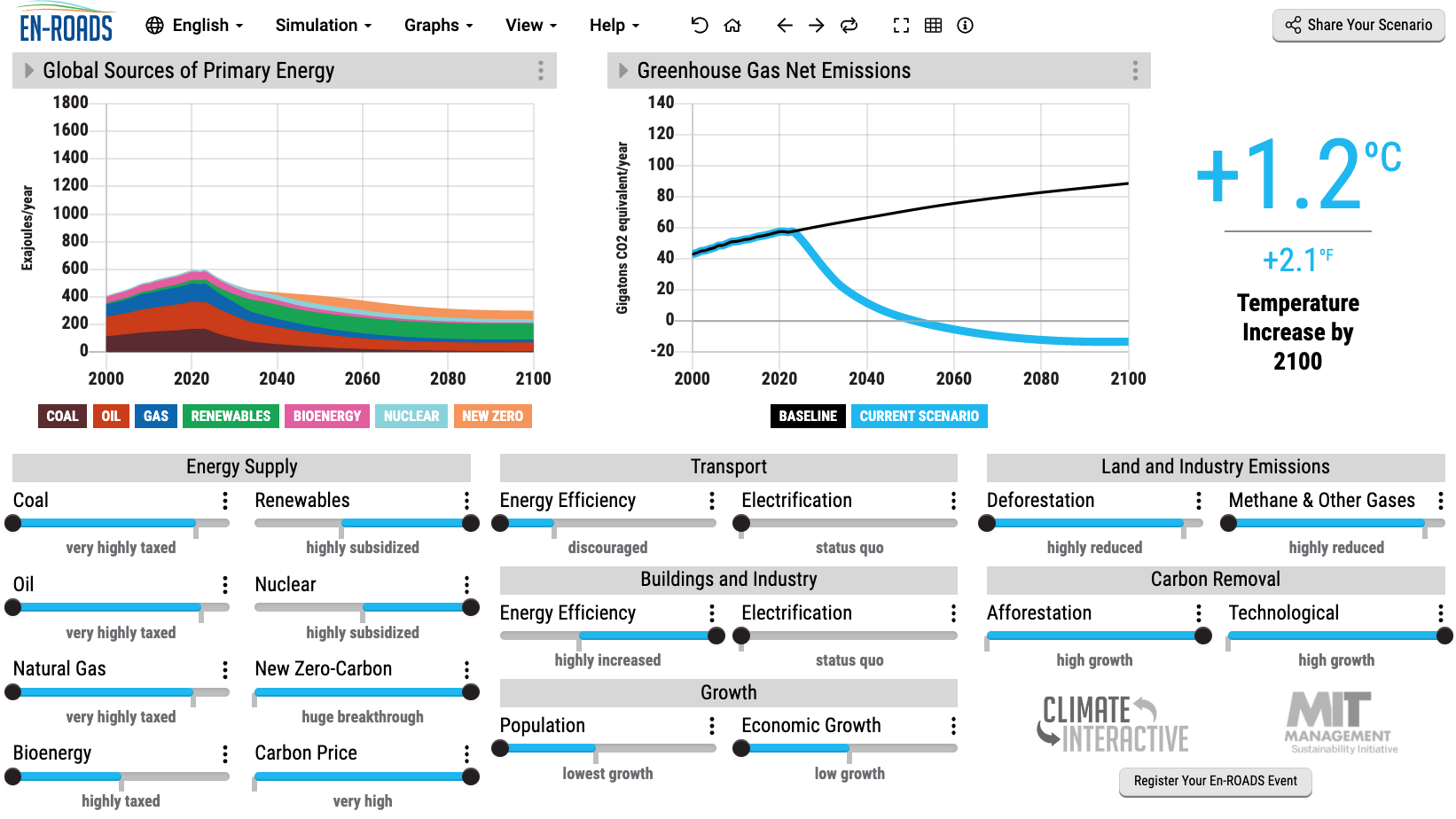
Source: Climate Interactive
Knowing limitations
- Known unknowns
- Unknown unknowns
- “Garbage in, garbage out”
Interpreting results
- Results are outcomes of assumptions and models
- Results does not automatically translate to policies
- Communicating the limitations and uncertainties
Open source
- Open model (code)
- Open data
- Open results
- Open validation
In Open we Trust!
Read more: Wikipedia
Ensure model for society
- Mind the assumptions
- Mind the hubris
- Mind the framing
- Mind the consequences
- Mind the unknowns
- Questions not answers
Read more: Saltelli et al. (2020)
Summary
- Know the limitation of models
- Use model appropriately
- Interpret/communicate the results effectively
- Models for social good
References
Craig, Paul P, Ashok Gadgil, and Jonathan G Koomey. 2002. “What Can History Teach Us? A Retrospective Examination of Long-Term Energy Forecasts for the United States.” Annual Review of Energy and the Environment 27 (1): 83–118. https://doi.org/10.1146/annurev.energy.27.122001.083425.
Hausfather, Zeke, Henri F Drake, Tristan Abbott, and Gavin A Schmidt. 2020. “Evaluating the Performance of Past Climate Model Projections.” Geophysical Research Letters 47 (1): e2019GL085378. https://doi.org/10.1029/2019GL085378.
Hodges, James S, James A Dewar, et al. 1992. “Is It You or Your Model Talking?: A Framework for Model Validation.” Rand Santa Monica, CA. https://www.rand.org/pubs/reports/R4114.html.
Peng, Wei, Gokul Iyer, Matthew Binsted, Jennifer Marlon, Leon Clarke, James A Edmonds, and David G Victor. 2021. “The Surprisingly Inexpensive Cost of State-Driven Emission Control Strategies.” Nature Climate Change 11 (9): 738–45. https://doi.org/10.1038/s41558-021-01128-0.
Peng, Wei, Gokul Iyer, Valentina Bosetti, Vaibhav Chaturvedi, James Edmonds, Allen A Fawcett, Stéphane Hallegatte, David G Victor, Detlef van Vuuren, and John Weyant. 2021. “Climate Policy Models Need to Get Real about People—Here’s How.” Nature Publishing Group. https://doi.org/10.1038/d41586-021-01500-2.
Saltelli, Andrea, Gabriele Bammer, Isabelle Bruno, Erica Charters, Monica Di Fiore, Emmanuel Didier, Wendy Nelson Espeland, et al. 2020. “Five Ways to Ensure That Models Serve Society: A Manifesto.” Nature Publishing Group. https://doi.org/10.1038/d41586-020-01812-9.
Social economic structural changes
Read more: Turning Numbers into Knowledge